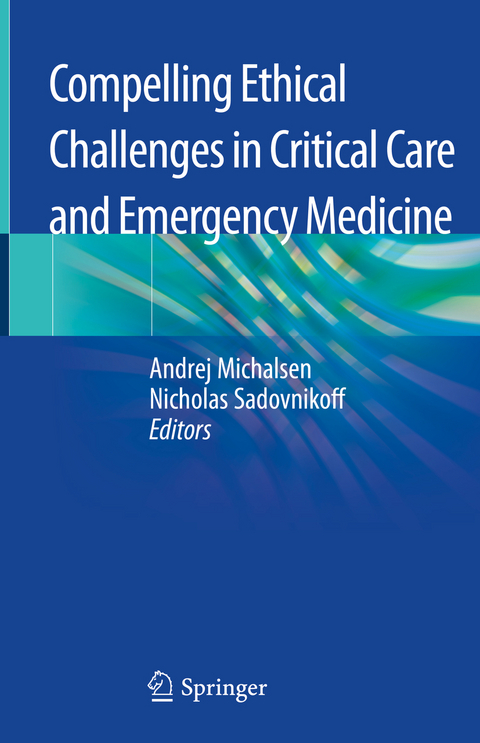
Compelling Ethical Challenges in Critical Care and Emergency Medicine
Springer International Publishing (Verlag)
978-3-030-43126-6 (ISBN)
In this book, experts in their respective fields describe compelling ethical challenges resulting from these discrepancies and discuss potential solutions. The book is primarily intended for clinicians who care for two of the most vulnerable patient subpopulations - those being treated in ambulances or emergency rooms, and those being treated at intensive care units - due in part to the fact that they may be temporarily or permanently incapacitated. Core medical skills, such as diagnosis and predicting outcomes, as well as implementing treatment, remain challenging. However, without adequate communication and collaboration both within the inter-professional treatment teams and between the teams and the patients/their families, delivering excellent care is difficult at best. Therefore, the so-called "soft skills" are given the attention they deserve in order to overcome the gap between technological progress and interpersonal standstill.
Andrej Michalsen, MD, MPH, was born 1957 in Überlingen/See, Germany. He received his medical training at Kiel, Freiburg and Tübingen Universities as well as at the University of Texas School of Public Health in Houston, TX, U.S.A., and he has worked at the academic hospitals of Mainz, Germany, and Utrecht, the Netherlands. He is currently a consultant in Anaesthesiology and Critical Care at Tettnang Hospital, Germany, and the chair of the Ethics Committee there. He is a member of the Section on Ethics of the European Society of Intensive Care Medicine (which he chaired from 2013 to 2016), a member of the Ethics Section of the German Interdisciplinary Association of Intensive Care and Emergency Medicine, and a member of the Ethics and Conflict of Interest Committee of the American Thoracic Society. He also chaired the Subcommittee on Ethics of the annual German Anaesthesiology Congress from 2017 to 2020. His main areas of interest are focused on ethical issues in health care delivery and end-of-life care.
Foreword.- Preface.- Part I Introduction.- How ethics can support clinicians caring for critically ill patients.- Patients and teams caring for them: parallels between critical care and emergency medicine.- Part II Goal of therapy, teams and patients.- Indication and prognostication.- Consent, advance directives, and decisions by proxies.- Cultural diversity.- Inter-professional shared decision-making.- Shared decision-making with patients and families.- Part III Extent of treatment.- Triage.- Usage of cutting edge technology: eCPR.- Usage of cutting edge technology: ECMO.- Limiting life-sustaining therapies.- Advancing palliative care in intensive care and emergency medicine.- Organ donation and transplantation.- Part IV Disproportionate care.- Disproportionate care, ethical climate and burnout.- Part V The way ahead.- Chapter 15.To treat or not to treat: How to arrive at an appropriate decision under critical circumstances?.- Epilogue.
| Erscheinungsdatum | 24.07.2020 |
|---|---|
| Zusatzinfo | XIX, 170 p. 10 illus. in color. |
| Verlagsort | Cham |
| Sprache | englisch |
| Maße | 155 x 235 mm |
| Gewicht | 444 g |
| Themenwelt | Medizin / Pharmazie ► Medizinische Fachgebiete ► Intensivmedizin |
| Schlagworte | Burnout • Clinical Ethics • cultural diversity / cultural relativism • indication and prognostication • inter-professional communication • limitation of life-sustaining therapies • Organ Donation • Palliative Care • shared decision-making • Triage |
| ISBN-10 | 3-030-43126-6 / 3030431266 |
| ISBN-13 | 978-3-030-43126-6 / 9783030431266 |
| Zustand | Neuware |
| Haben Sie eine Frage zum Produkt? |
aus dem Bereich


